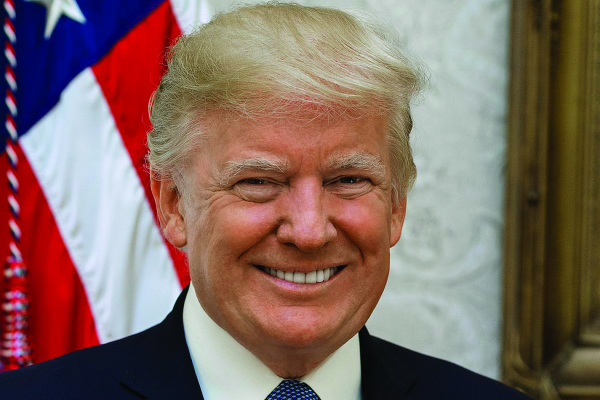
I REMEMBER the year when I turned seven. That year was 1949. The advancing Soviet Army had driven us away from our home in the most extreme eastern part of Germany. We got as far as the Russian-occupied zone. We, as a family, saw no future for us in this Soviet Republic. We decided to move westwards to the free and more prosperous Federal Republic which had a new democratic Constitution, and a Parliament.
Opinion: Oskar Wermter SJ
We had to cross the border between East and West. It consisted merely of a ditch filled with rolls of barbed wire. Later it was replaced by walls and barriers. This was my first encounter with such an obstacle. But it also opened up a new culture, and the freedom to learn and develop my talents and gifts.
After school in 1961, I went for my training and formation as a Jesuit priest in Berlin which was just then cut into two, East and West, by building the infamous Berlin Wall and setting up watchtowers manned by armed border police with dangerous dogs.
I volunteered for working with the young church in Africa. On my way to this country I wanted to see a bit of independent Africa, but there was no way to travel from Lusaka to Salisbury, as it then was, I had to fly via Blantyre to enter Southern Rhodesia (now Zimbabwe) through the backdoor, jumping across our “Iron Curtain” between colonial and independent Africa which ran along the Zambezi River.
Obstacles, barriers and borders everywhere. Rhodesia, called already Zimbabwe by the “freedom fighters”, was divided into rural and urban areas. I was confronted with the contrast by entering the capital on a rural bus. The war that was about to start would draw new borderlines, between commercial farmland that made it a “white man’s country” and communal areas where the black majority had to squeeze in. Only at the university and some church institutions did white and black rub shoulders.
Fences were built everywhere to protect the whites from the blacks and vice versa, e.g. the “protected villages” called “concentration camps” by the opponents of the then government. Most of our “born frees” have never heard of such things. But my memory as a 77-year-old allows me to have the past present. And I insist that we remember and do not forget, so as not to repeat past disasters.
Landmines are still lying hidden in the bush along our borders, many are still to be lifted, so as not to tear cattle and their owners limb from limb. They were meant to form a protective curtain to stop freedom fighters from invading the country. I had seen fortified borders before. When I crossed Germany from East to West the seven-year-old dodged the guns of the Russian border guards.
- Chamisa under fire over US$120K donation
- Mavhunga puts DeMbare into Chibuku quarterfinals
- Pension funds bet on Cabora Bassa oilfields
- Councils defy govt fire tender directive
Keep Reading
Somalis and Ethiopians, Congolese and even Zimbabweans swim across the Limpopo to reach South Africa, their dreamland. Women with babies strapped on their backs have been killed by another kind of border guard, crocodiles.
On a pilgrimage to the Holy Land, I saw the wall that was being built to separate the Palestinians from the Israelis, protecting Jerusalem from Arab militants in Bethlehem. The “Berlin Wall” has long been demolished by triumphant Berliners. How long will that Jewish wall remain standing?
Now United States President Donald Trump starves his fellow citizens through a government shutdown so as to save the funds for building a gigantic wall against his Mexican neighbours. Do walls reconcile enemies, do guns build bridges and armies give us economic security?
If Colombia had a leadership respecting the rule of law, controlled the drug lords and provided work and a livelihood for its citizens, would they still invade the US? Why not use those billions of dollars to create legal employment? Would that not provide the security that terrified Americans yearn for? A socially and economically pacified Mexico would in the end also have peace along its borders.
Stability and productivity in an impoverished and misruled Africa would stop mass migration. It would reduce the misery of unsettled foreign settlers, xenophobia and crime.
In 70 years I have crossed many borders, met many people on the way, and have almost become a migrant myself. I remember many who have sought refuge in more prosperous countries. I hope to see them again in Zimbabwe. We need their skills, their work experience and respect for the rule of law. They are needed right here much more than in their countries of refuge.
Come back. You have gone far and crossed many borders. I hope you still find your way back home.
Oskar Wermter SJ is a social commentator. He writes in his personal capacity.











